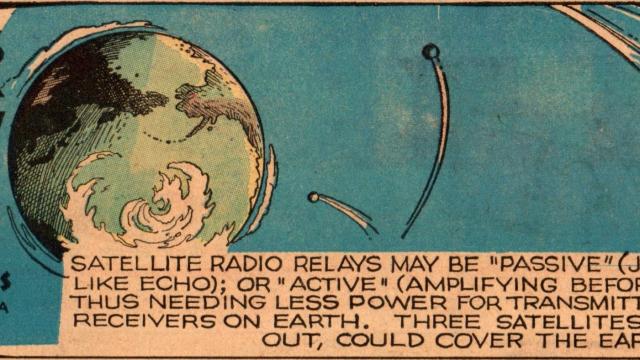It’s hard for many of us living here in the early 21st century to imagine a world without satellites. Well, in fairness, we don’t really think about satellites at all. Much like electricity or tap water, we only remember how vital they are when they stop working. Our GPS devices, smartphones and modern military infrastructure all depend on satellites.
But before they ruled our world, experts were predicting how they might radically alter the way we communicate. And as with many predictions that we look at here at Paleofuture, they got a lot right, just not in the form that was initially imagined.
The February 17, 1962 issue of the Sunday comic strip Our New Age (in this case, run on a Saturday in the Chicago Daily News) envisioned the fantastic advancements that the introduction of satellites would allow. Everything from the decline of “old fashioned mail” to the rise of video-conferencing from home was predicted by Athelstan Spilhaus, dean of the University of Minnesota’s Institute of Technology and author of the comic strip.
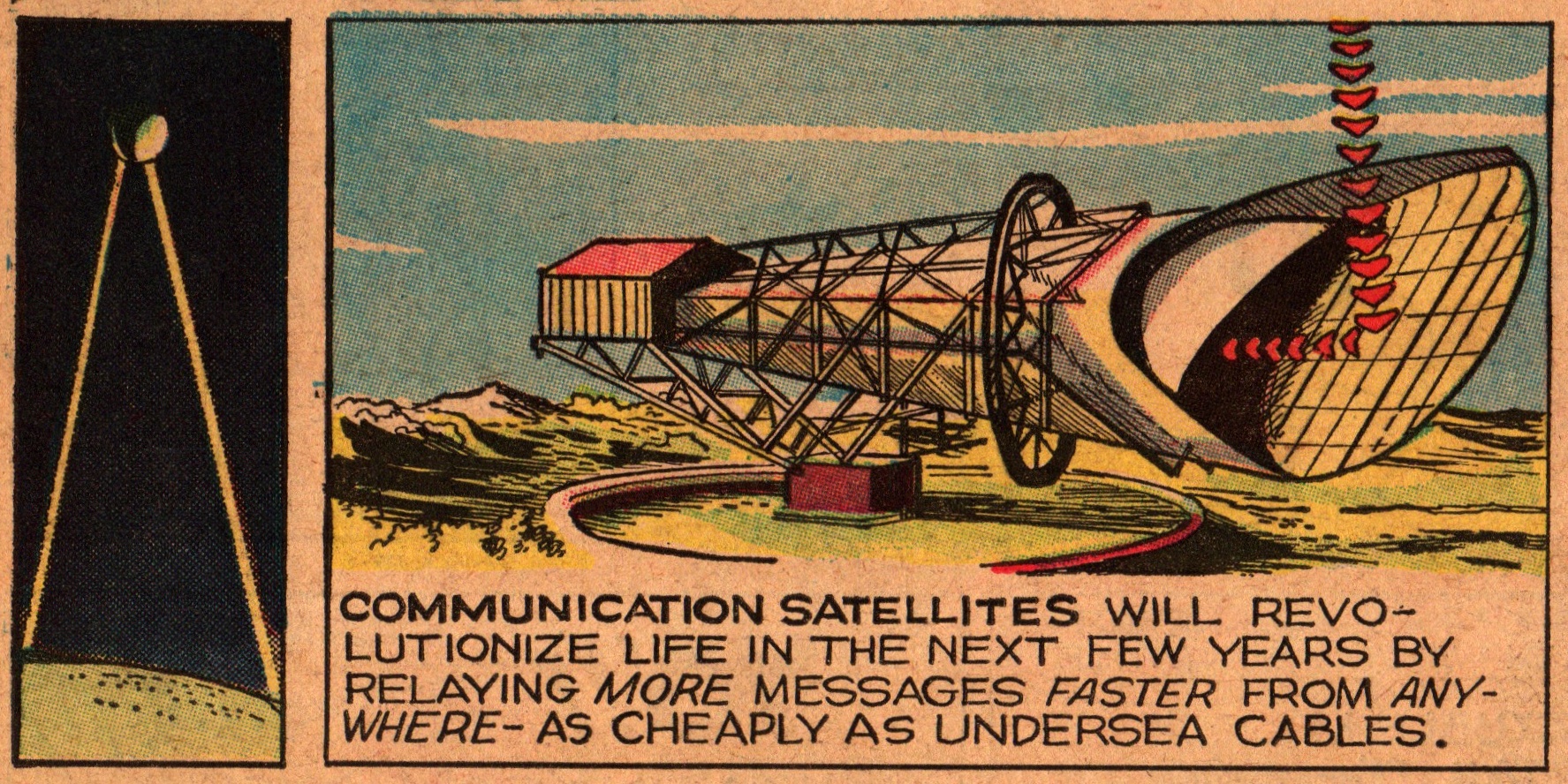
“Communication satellites will revolutionise life in the next few years by relaying more messages faster from anywhere — as cheaply as undersea cables,” the comic strip proclaimed. And Spilhaus was absolutely right. Undersea cables are, of course, still a part of our modern communications infrastructure. But tossing a photo halfway around the world is now a process that now more often involves beaming to the heavens.
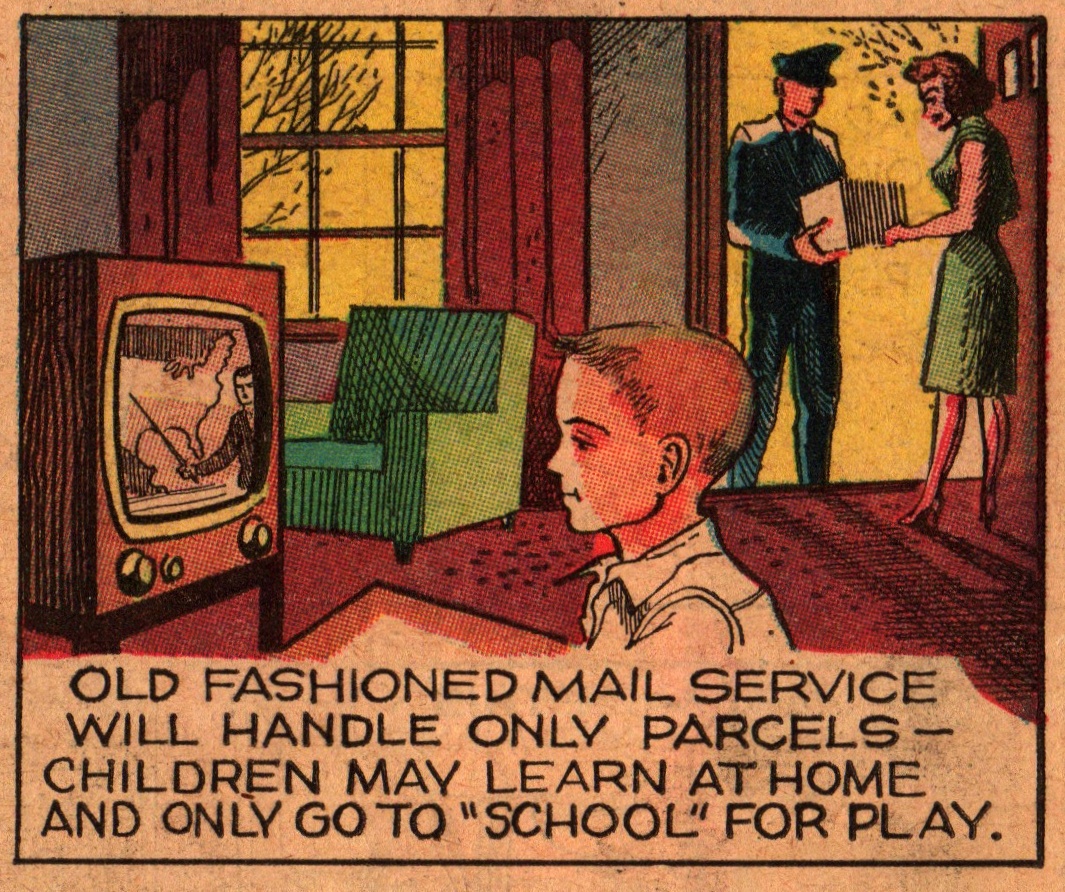
The strip also promised that “old fashioned mail service” will only be for packages. Again, something that has indeed come to pass in many ways — and something that organisations like the United States Postal Service are struggling with.
As for children learning from home and only going to school for play? Not so much. The classroom hasn’t disappeared quite yet, despite a century of promises about distance learning.
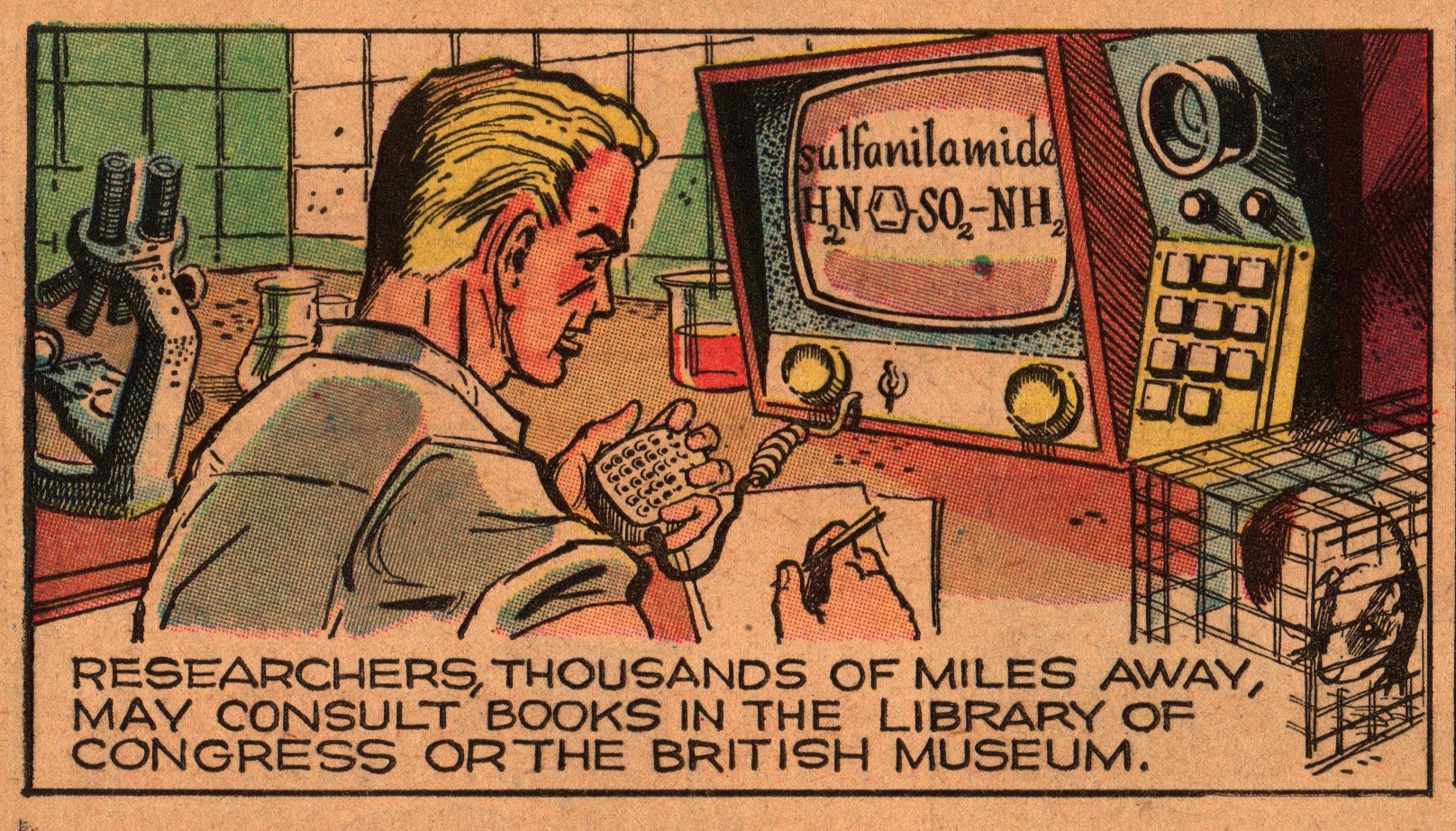
“Researchers, thousands of miles away, may consult books in the Library of Congress or the British Museum,” the strip promised. This being 1962 — seven years before the ARPANET would gasp its first breaths — the prediction was incredibly ahead of its time. In fact, ever since I first tweeted a photo of this image a few years ago, I’ve heard from at least half a dozen organisations (including the British Museum) asking if they could use the image.
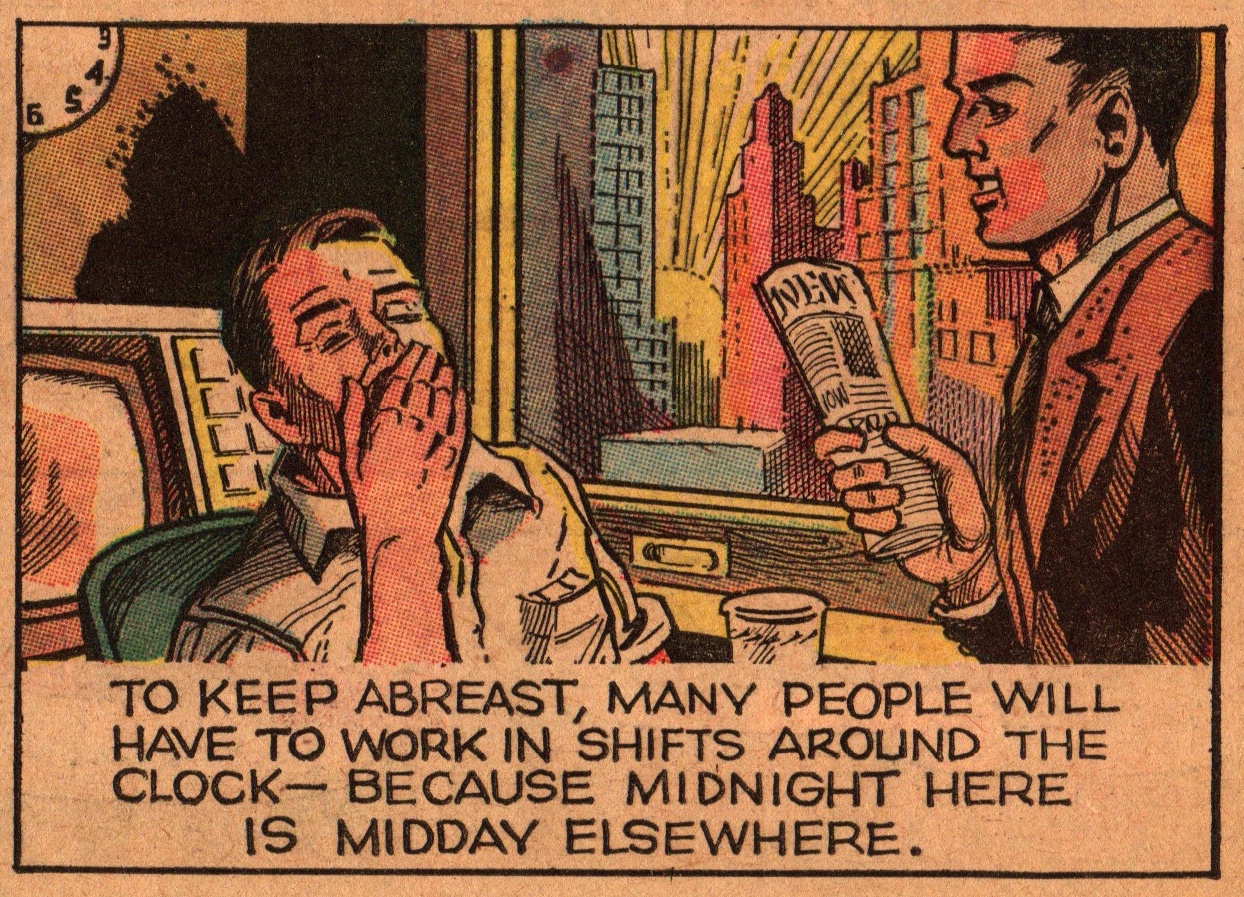
“To keep abreast, many people will have to work in shifts around the clock — because midnight here is midday elsewhere,” the strip explained. Modern communications technologies have changed the way that people around the world can work. Living in one time zone and effectively working in another is no longer so strange thanks to the infrastructure that makes geography irrelevant for certain jobs.
The strip imagined that the videophone (a dedicated appliance, pictured below) would aid in the push to make geography irrelevant to the businessperson of tomorrow.
“Perhaps communication satellites will even solve the traffic problem!” the strip insisted rather optimistically.

But here in 2014, satellites aren’t just about talking to your boss over the videophone. Nor have they ever been. This being a Sunday comic strip, it’s obvious that the focus on civilian communications was more appropriate than mentioning one of the most important functions of satellites: Spying on enemies from above.
And today, America’s dependence on satellites and their vulnerability to terrorism are cause for concern. Now that we expect our satellites to work like tap water, what would happen if there was a major disruption in service?
“The United States has strategic interests in preventing and mitigating dangerous space incidents, given its high reliance on satellites for a variety of national security missions and unparalleled global security commitments and responsibilities,” one recent report from the Council on Foreign Relations warned.
Everything from the safety of our thousands of nukes to paying for a cup of coffee has the potential to be impacted if satellite communications were interrupted.
“Threats to U.S. satellites would reduce the country’s ability to attack suspected terrorists with precision-guided munitions and conduct imagery analysis of nuclear weapons programs, and could interrupt non-cash economic activity depending on the severity of the attack and number of satellites disrupted,” the recent report read.
The Sunday funnies never warned us that our reliance on satellites might become a crutch that, if kicked out from under us, create mass chaos.
Pictures: Scanned from the February 17, 1962 issue of the Chicago Daily News
